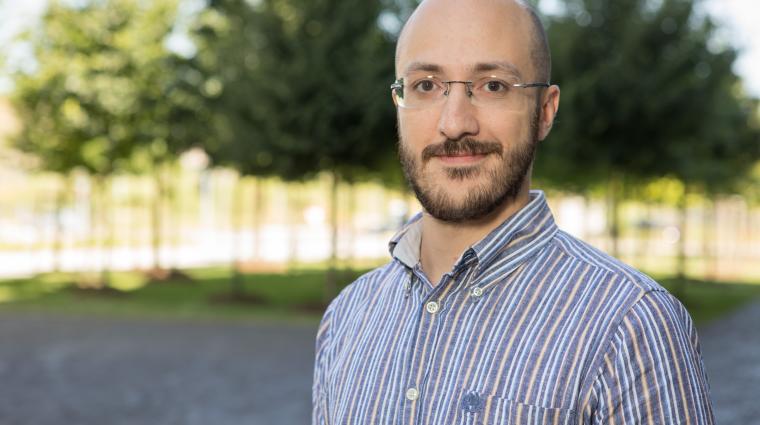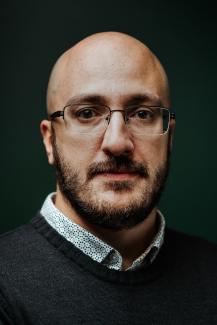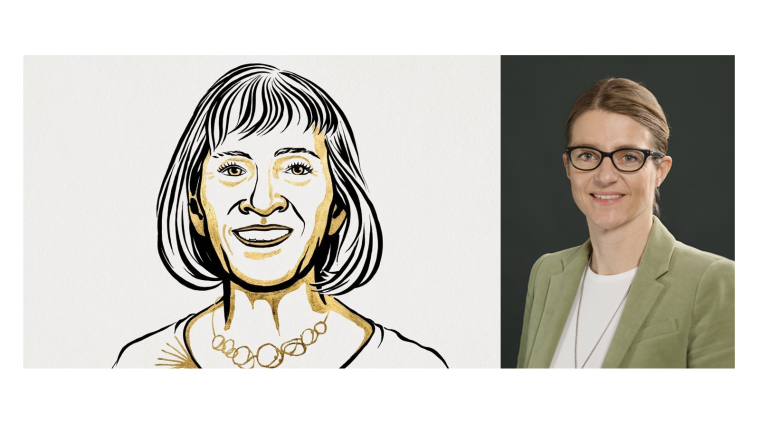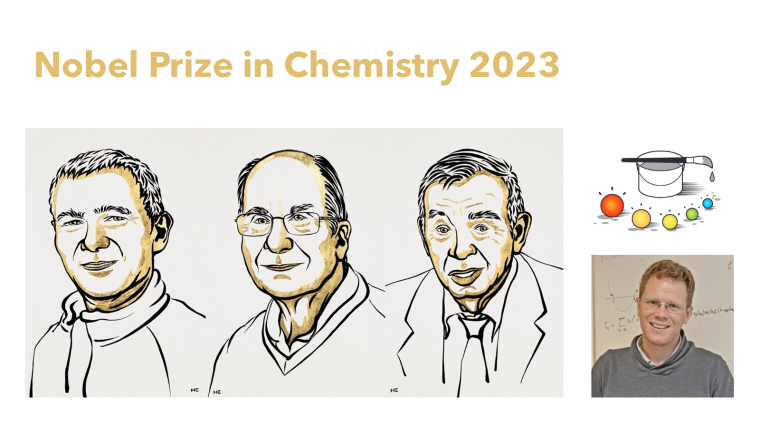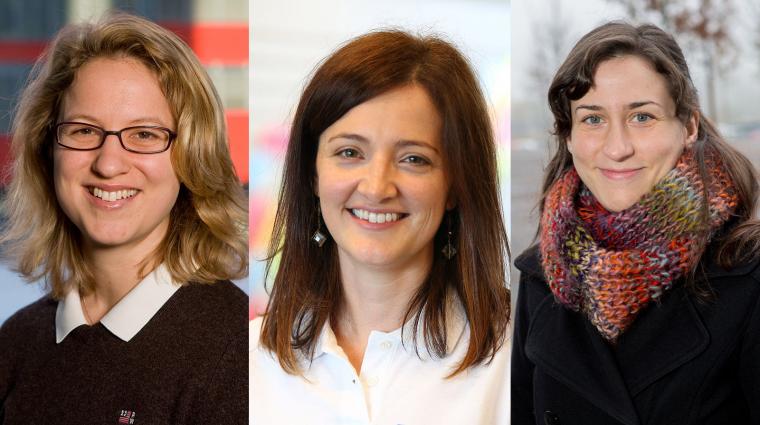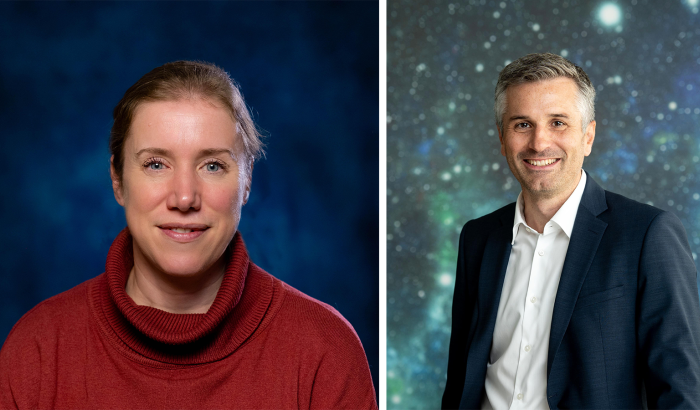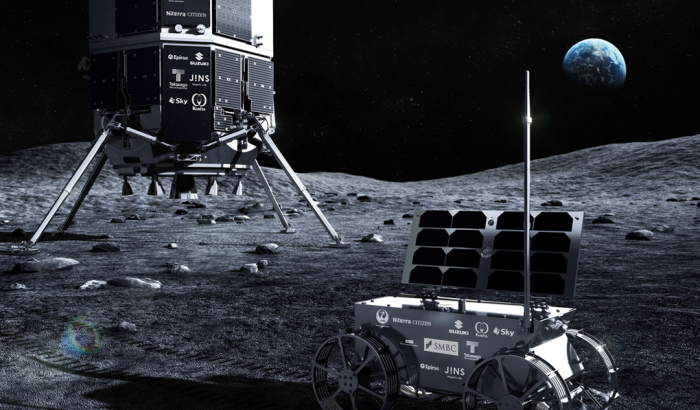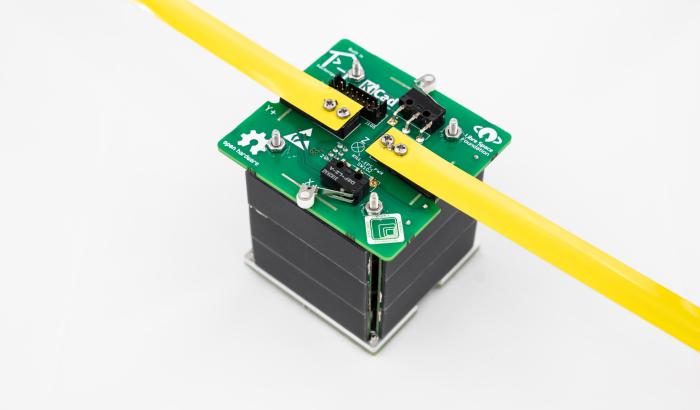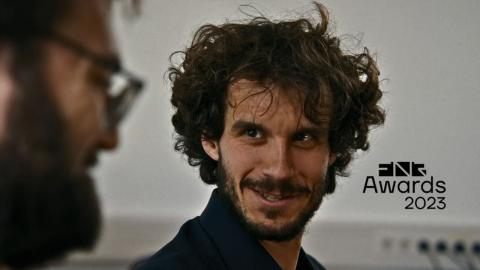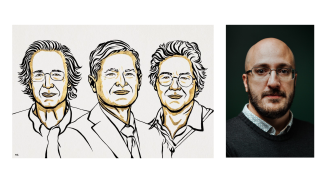
© Nobel Prize & FNR / Rick Tonizzo
Nobel prize laureates 2023 Pierre Agostini, Ferenc Krausz and Anne L’Huillier (from left to right) & Prof. Daniele Brida from the University of Luxembourg (far right)
Pierre Agostini, Ferenc Krausz and Anne L'Huillier have today been announced as this year's Nobel Prize winners in Physics. The three recipients are being honored for their studies, in which they demonstrated how to produce incredibly brief light pulses that can be used to gauge how quickly electrons move or change their energy. Through their work, they have provided mankind with unprecedented resources for examining the world of electrons inside atoms and molecules.
We spoke to Daniele Brida, Professor of Experimental Condensed Matter Physics at the University of Luxembourg, whose own research is again very connected to the topic of this year's Nobel Prize - as it was already in the year 2018:
Prof. Daniele Brida, what is the importance of the Nobel laureate’s discoveries?
Daniele Brida: This Nobel prize acknowledges the scientific efforts aimed at producing flashes of light that are as short as possible. One attosecond is a billionth of a billionth of a second. It’s an unimaginably small amount of time. To give a perspective, if we stretch one attosecond to be as long as a second, one second will last longer that the age of the universe.
Having laser pulses with such a short duration allows us to make “pictures” of elemental processes occurring in matter and thus understand why materials have the properties that they display.
The contribution of the three winners, occurred at different points in time in the journey of developing the sources for the generation of attosecond pulses: from the first demonstration of the fact that the underlying mechanism was feasible, to the generation and characterization of individual attosecond pulses.
What do you think: Is the Nobel Prize well deserved?
A Nobel prize for attosecond science, the field of research recognized now, has been rumored for several years. I still am surprised to some extent since the Nobel Prize for physics of 2018 was already in the same area of research and I thought that it could take some more time to come back to ultrafast physics. However, the research conducted by the winners is certainly worthy of high praise.
Pierre Agostini, Anne L’Huillere and Ferenc Krausz were at the center of the decade-long development of the techniques for the generation of attosecond pulses of lights that can be exploited to investigate fundamental phenomena in matter at extremely short timescales.
Still, I will expect a bit of discussion within the community since it is always difficult to single out three profiles from a broader pool of researchers.
What is your own research about?
My own field of research is very connected to the topics awarded with the Nobel prize for Physics this year. In my group, we exploit extremely short laser pulses to study physical systems that display interesting properties such as superconductors or two-dimensional/quantum materials. The unique specialty of my group is the capability of combining pulses in different spectral regions, from the ultraviolet to the far-infrared, in order to have a complete picture of the physical phenomena that we investigate. In addition, we use light pulses to push even beyond the results obtained by the winners: one of our current goals is generation of electron pulses with attosecond duration so to open completely new avenues of research where such an extreme temporal insight can be investigated not just by photons (light) but also by electronic techniques.
Thank you Prof. Brida for your quick reaction!
More info on Daniele Brida's work on the FNR website.
More info on the Nobel Prize in Physics 2023 on the Nobel website.
Questions: Michèle Weber (FNR)
Answers: Daniele Brida (University of Luxembourg)
Dieser Artikel ist Teil einer Serie
- 1 / 4 Medizin-Nobelpreis: Einschätzung von Experten aus Luxemburg zu mRNA-Impfstoffen Lesen
- 2 / 4 Nobel prize in physics: Research from Luxembourg connected to experiments with short pulses of light Lesen
- 3 / 4 Chemie-Nobelpreis: Auch in Luxemburg wird an Quantenpunkten geforscht Lesen
- 4 / 4 Nobel prize in economics: Research in Luxembourg on gender differences in the labour market Lesen

